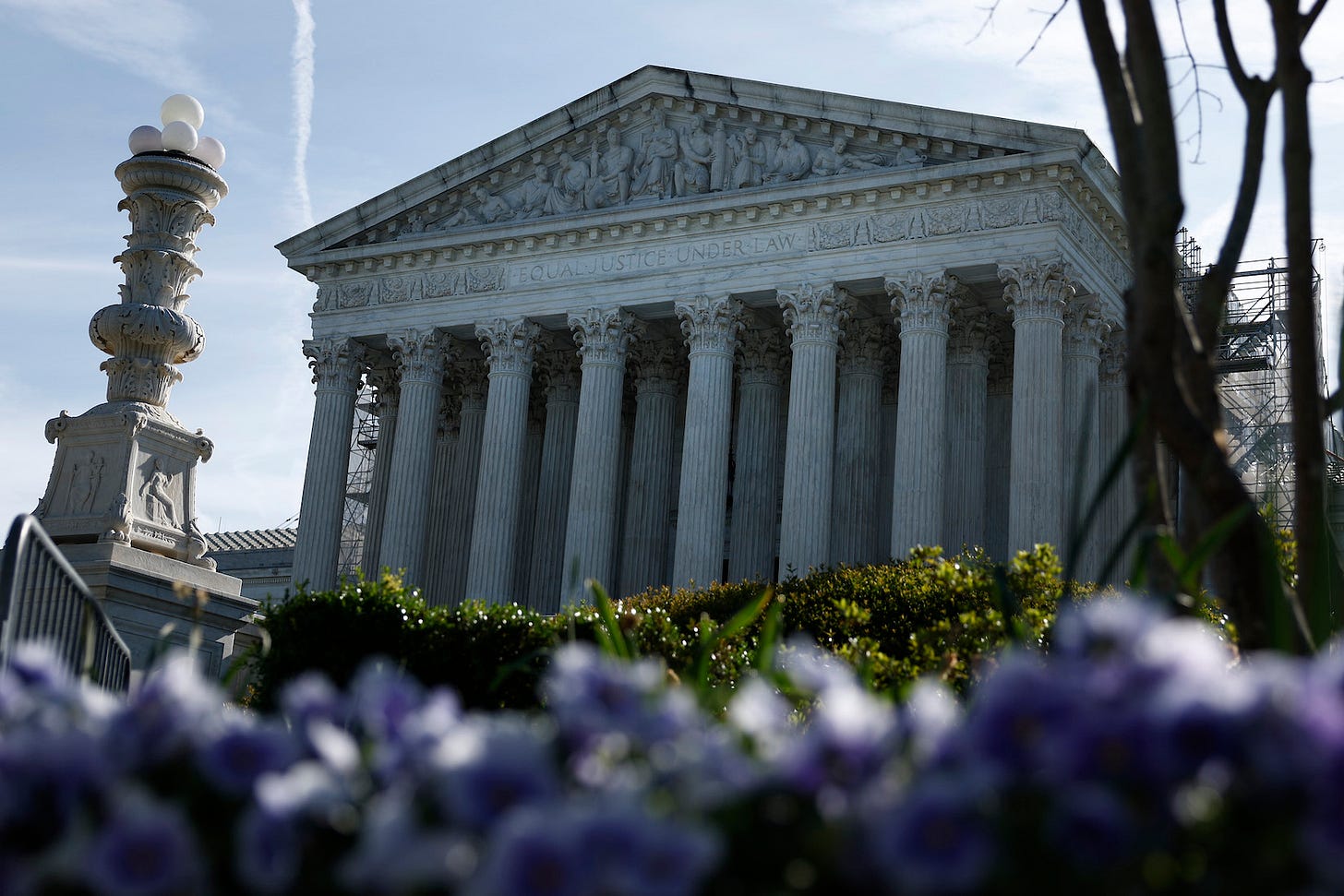Supreme Court hears case that could gut Voting Rights Act on its 60th anniversary
The ACLU's voting rights project director breaks down the importance of Louisiana v. Callais in an interview on the cusp of oral arguments.
Keep informed on legal news that reveals where we are, how we got here, and what you can do about it.
On the 60th anniversary of the Voting Rights Act, the Supreme Court might be poised to weaken the last remaining pillar of that landmark civil rights law.
The case, Louisiana v. Callais, will decide whether the Black-majority district that a federal judge ordered to protect minority voting power in the Bayou State is unconstitutional, but the American Civil Liberties Union’s voting rights project director Sophia Lin Lakin noted the stakes are much larger.
“This case isn’t just about the map in Louisiana,” Lakin said in a video interview. “And the outcome will not only determine the next steps for Louisiana’s congressional map, but may also shape the future of redistricting cases nationwide and forecast … resilience of our nation’s democratic values.”
Watch the full interview below:
After the 2020 census, Louisiana Republicans created an electoral map with just one Black majority district. The state has six House seats, and Black people represent roughly a third of the state’s population.
After the map came under legal challenge, a federal judge ordered the creation of a second Black majority district to comply with Section 2 of the Voting Rights Act, which has been used historically to protect against the dilution of minority voting power.
The revised maps sparked the Louisiana v. Callais litigation, which the Supreme Court initially heard last term in March.
Instead of ruling on the narrow issue of racially gerrymandered maps, the justices ordered a new round of oral arguments on a broader question: “[w]hether the state’s intentional creation of a second majority-minority congressional district violates the Fourteenth or Fifteenth Amendments to the U. S. Constitution.”
How the Supreme Court answers that question could be momentous.
“Minority representation came about because of the Voting Rights Act,” Lakin said. “Without it, I think we should be all very concerned that those opportunity districts that were created as a result of Section 2 of the Voting Rights Act — those will disappear.”
Earlier this month, voting rights groups released a report finding that Republicans could draw 19 more House seats if Section 2 is gutted.
“It’s enough to cement one-party control of the U.S. House for at least a generation,” according to the 16-page report, which was co-authored by advocacy groups Fair Fight Action and Black Voters Matter.
Much will depend on the timing and nature of the Supreme Court’s ruling, and a ruling that fell later in the term would come up against candidate filing deadlines and state primaries.
“However, if a ruling comes quite quickly, we might see something different,” Lakin said.
Supreme Court oral arguments begin at 10 a.m. Eastern Time, which will be aired on C-Span here.




This ruling will be monumental. If Callais prevails, the voting rights act will become nullified along with 60 years of progress towards a more representative democracy.